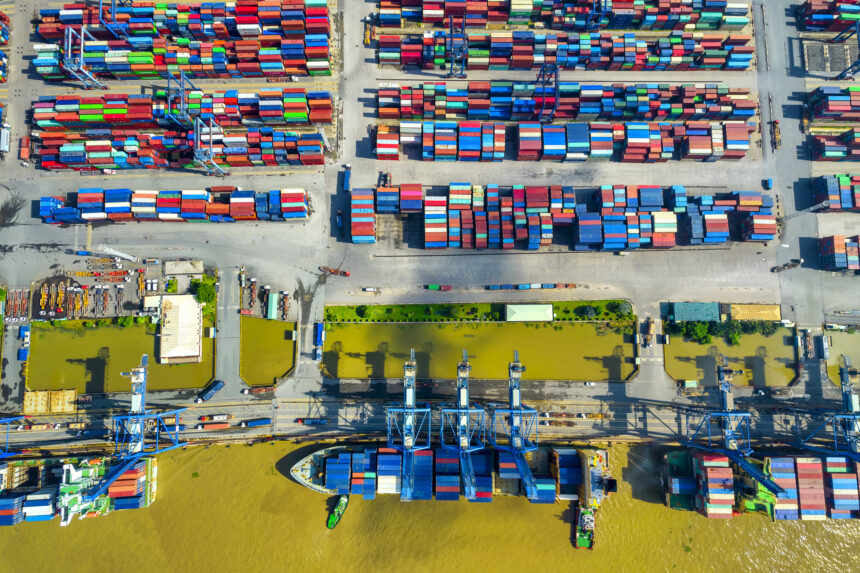
Lawmakers from both parties were among those who called on the Commerce Department to maintain Vietnam’s non-market status.
Vietnam will remain on the list of 12 countries the United States officially classifies as “non-market economies,” the Commerce Department announced. Announced on FridayThat is the right decision. Southeast Asian countries are simply None of the criteria are met Giving China market status was necessary and giving it that status would have been a win for China.
Vietnamese authorities had been pushing for a change in status, but This is one of the key points of discussion During President Biden’s visit to Vietnam in September, officials He claimed his country had made sufficient economic reforms. To qualify for market economy status, the Department of Commerce must ultimately (and rightly) That wasn’t enough:
“Despite the substantial reforms Vietnam has made over the past two decades, the government’s extensive involvement in the Vietnamese economy distorts Vietnamese prices and costs, ultimately making them unusable for calculating U.S. anti-dumping duties. The Department of Commerce will continue to use market-based prices and costs from countries that are at a similar level of economic development to Vietnam and produce comparable products to calculate anti-dumping duties.”
There is Six legal standards The considerations the Department of Commerce must follow in determining whether a country meets market status include the convertibility of currency, the extent to which wage rates are determined by free negotiation between labor and management, the extent to which foreign investment is permitted, the degree of government control over the means of production, the degree of government control over the allocation of resources and the determination of prices and output by enterprises, and any other factors “that the Administration deems appropriate.”
Vietnam Not all six criteria are metThe banking system continues to operate under government control. on the Treasury Department’s watch list Labor laws against currency manipulation are minimal; Hardly enforcedand Child labor remains a major concernVietnam remains a communist country with a centrally run, state-owned economy that is difficult for foreign investment to obtain and dominated by state-owned enterprises, and price controls remain a government priority. Especially in key areas.
Vietnam’s failure to meet the actual criteria for being granted market economy status is more than enough to keep it a non-market economy, but the Commerce Department’s decision raised another major concern: China.
China Using third countries like Vietnam To avoid U.S. trade enforcement actions, the Commerce Department has already That’s exactly what’s happening For some solar power products, if the Commerce Department had granted market economy status to Vietnam, the United States would have effectively voluntarily removed itself from some of the trade tools necessary to counter unfair Chinese trade tactics, such as circumvention, giving China an advantage.
Indeed, that was one of the main reasons why there was strong bipartisan opposition in Congress to granting market status to Vietnam, with progressives like Sen. Elizabeth Warren (D-Mass.) and conservatives like Sen. J.D. Vance (R-Ohio) sounding the alarm.
Senator Warren was one of eight senators, including Senators Sherrod Brown (D-Ohio) and Bernie Sanders (I-Vermont), who sent a letter to Commerce Secretary Gina Raimondo saying, “We urge the Department of Commerce to take into account the close economic ties between Vietnam and China, particularly as China and Vietnam actively seek to deepen their trade relationship.” continuation:
“Vietnam’s manufacturing industry is heavily dependent on raw materials from China, exposing it to the risk of forced labor in the supply chain. Moreover, the Department of Commerce itself has warned that China is using Vietnam to evade U.S. anti-dumping duties on Chinese products. Vietnam currently has 25 anti-dumping orders issued against it, with four more investigations pending. These current and pending orders span a wide range of industries, from tires, mattresses and paper shopping bags to wind towers. Granting Vietnam market economy status could affect the outcomes of pending anti-dumping investigations and prevent the Department of Commerce from protecting domestic workers and producers from market-distorting practices.”
Meanwhile, in a letter to Senator Raimondo, Senator Vance and Republican Senators Josh Hawley (Missouri) and Tom Cotton (Arkansas) argued that “while Vietnam may be an important regional partner, it does not have a market economy.” I have written:
“From steel to catfish, our industries compete with Vietnamese exporters and rely on the Department of Commerce to enforce and comply with U.S. trade laws. In the past 20 years alone, more than 30 U.S. industries in at least 35 states have filed lawsuits alleging dumping or circumvention of Vietnamese imports. Anti-dumping and countervailing duty concerns have only worsened, with more than half of these cases filed in the past five years. Granting Vietnam market economy status would give Vietnamese producers an even greater advantage by hiding price discrimination in the U.S. market.”
For a variety of reasons, the Department of Commerce was right to maintain Vietnam’s non-market economy status. If Vietnam wants to earn some of the privileges that come with a market economy, it will need to make much more substantial reforms. In the meantime, the United States needs to maintain and strengthen the trade tools available to it to combat trade abuses, whether by Vietnamese companies or by Chinese companies that try to use third countries to evade tariffs and existing enforcement mechanisms.







